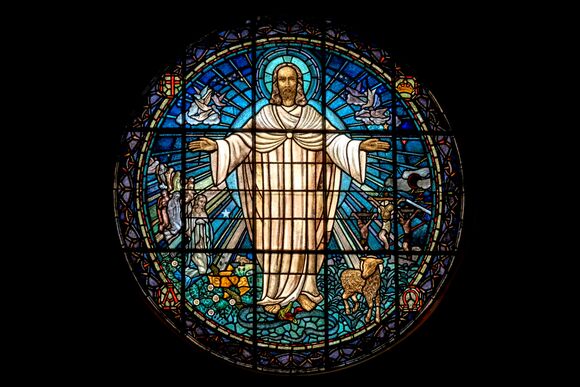Reflection for Sunday 15th February, 2026
6th Sunday in Ordinary Time
The Commandments are guidelines to Virtues (Matt 5:17-37)
Today’s Gospel is about understanding the positive meaning of the commandments. At the time of Jesus, the Scribes and Pharisees were the dominating legalists. On the one hand they brought in multiple rules which squeezed the joy out of religion. But on the other hand, they analysed the Commandments to see where exceptions to the rule could be found.
The Commandments nurture virtues
“I have not come to abolish the Law or the Prophets but to complete them.” He came to restore the virtue or ideal that each commandment protects and promotes. “For I tell you, if your virtue goes no deeper than that of the scribes or Pharisees, you will never get into the kingdom of heaven.”
 “I came into the world for this, to bear witness to the truth and all who are on the side of truth listen to my voice.”
“I came into the world for this, to bear witness to the truth and all who are on the side of truth listen to my voice.”Today’s Gospel reflects on three of the “Thou shalt not” commandments … Thou shalt not kill … or commit adultery … or bear false witness under oath. “But I say to you” … and he proceeded to the ideal or virtue which each commandment was intended to nurture: the sanctity of life; the sacredness of marriage; a kingdom of truth.
Sanctity of life
Any rule written in human words is open to interpretation. “Thou shalt not kill.” Yet sharp legalists found areas where exceptions were allowed. It became legitimate to stone a person for blasphemy, or for adultery, or if a son cursed his father. Jesus was condemned to death by people who were supposed to obey the Fifth Commandment, “Thou shalt not kill”! In today’s Gospel, Jesus defended the sacredness of life. Anger must be controlled. Killing occurs also in destroying somebody’s good name. If you have hurt somebody, seek reconciliation before coming to worship. This commandment was intended to protect every aspect of the sacredness of life from the womb to the tomb.
Sacredness of marriage
The Sixth Commandment is “Thou shalt not commit adultery.” But the legal experts, all male of course, found loopholes. The definition of adultery was very complicated and differed from place to place.
A man who issued a writ of divorce to his wife for some trivial reason was then free to marry again. But legally, the wife was not free to remarry, so she was regarded as an adulteress if she remarried. An occasion arose for critics to test Jesus, whether he would join in stoning a certain adulteress or not. His reply was a score for equal rights for the woman. The same law should apply to the husband as to the wife. Jesus challenged the accusers that they too were sinners. Then to the woman whose life he had saved, he said, “Neither do I condemn you. Go away and sin no more” (John 8:11). His focus was more on the virtue than on the sin. Uncontrolled lust commits adultery of heart which is a contradiction of the Beatitude, “Blessed are the pure in heart for they shall see God.” In a world of uncontrolled pornography, it is no surprise that so many couples enter a partnership rather than marriage.
You must not break your oath
People go to court and swear on the bible, to tell the truth, the whole truth and nothing but the truth, and they haven’t the remotest intention of telling the truth! It seems to have been the same in Christ’s day. He wanted his people to belong to a kingdom of truth. “Let your ‘Yes’ mean yes, and your ‘No’ mean no.”
When Jesus was questioned by Pilate he replied, “I came into the world for this, to bear witness to the truth and all who are on the side of truth listen to my voice.” Pilate distainfully replied, “What is truth?” Truth is the first victim of war.
Marshal McLuhan, in 1967, published a book called The Medium is the Massage (massage, not message). It seems that he foresaw how the electronic media of our time would radically change the meaning of truth through fake news, conspiracy theories, Artificial Intelligence, the bait of a half-truth as an excuse (leathsceal) to cover up some lie, and the power of slogans which claimed compassion to justify abortion.
Jesus restored the Commandments to be guidelines to the virtues of the Kingdom of God on earth.
Prayer
Heavenly Father, may your kingdom be seen in respect for the sacredness of life, the sanctity of marriage and the light of truth.
Come Holy Spirit, once again breathe life into the dry bones in the valley. Enkindle within us the fire of your love.

